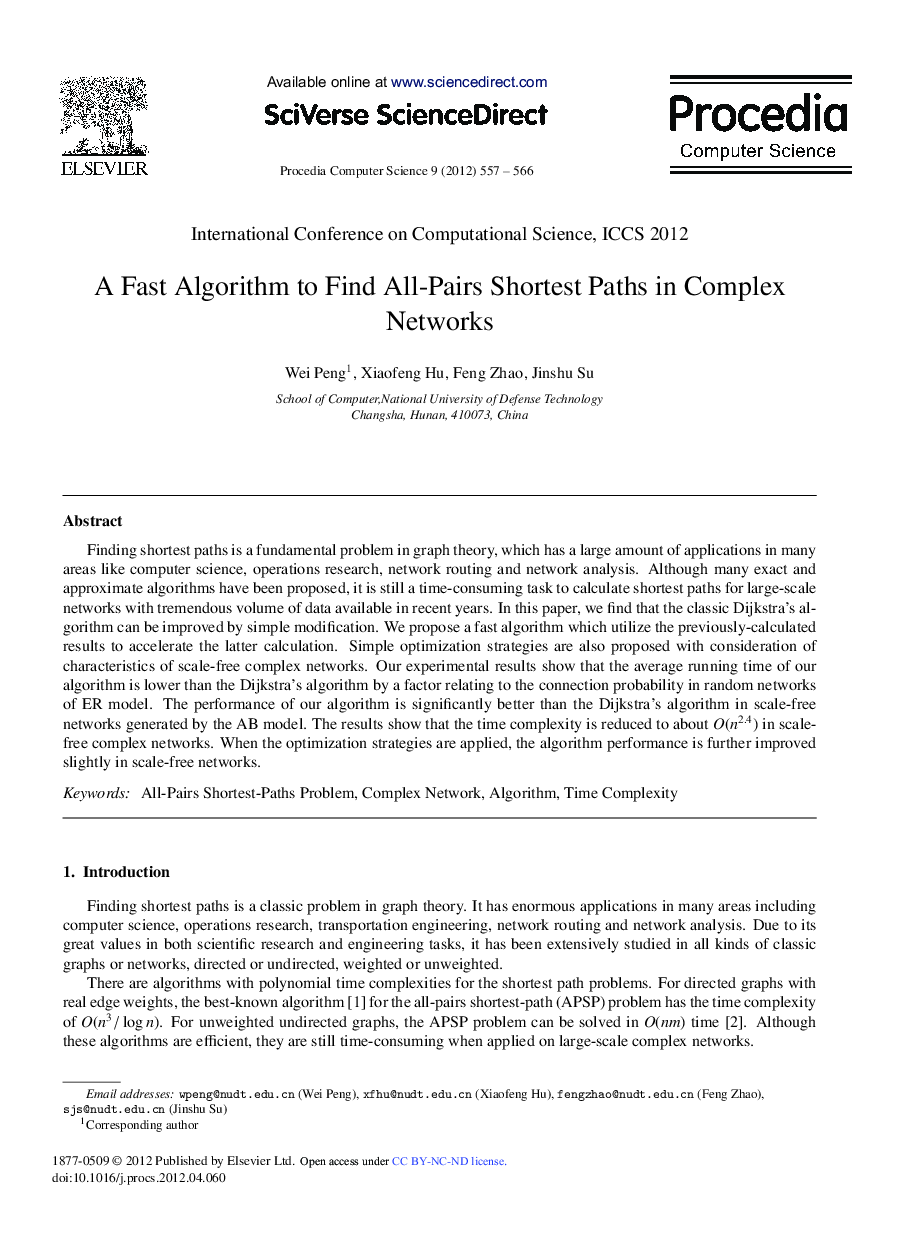| Article ID | Journal | Published Year | Pages | File Type |
|---|---|---|---|---|
| 486723 | Procedia Computer Science | 2012 | 10 Pages |
Finding shortest paths is a fundamental problem in graph theory, which has a large amount of applications in many areas like computer science, operations research, network routing and network analysis. Although many exact and approximate algorithms have been proposed, it is still a time-consuming task to calculate shortest paths for large-scale networks with tremendous volume of data available in recent years. In this paper, we find that the classic Dijkstra's algorithm can be improved by simple modification. We propose a fast algorithm which utilize the preiously-calculated results to accelerate the latter calculation. Simple optimization strategies are also proposed with consideration of characteristics of scale-free complex networks. Our experimental results show that the average running time of our algorithm is lower than the Dijkstra's algorithm by a factor relating to the connection probability in random networks of ER model. The performance of our algorithm is significantly better than the Dijkstra's algorithm in scale-free networks generated by the AB model. The results show that the time complexity is reduced to about O(n2.4) in scalefree complex networks. When the optimization strategies are applied, the algorithm performance is further improved slightly in scale-free networks.
